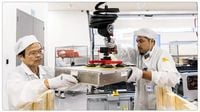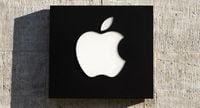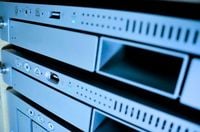Apple has taken a bold step in its manufacturing journey, announcing on October 23, 2025, that it has begun shipping its first-ever U.S.-made artificial intelligence (AI) servers from a newly operational facility in Houston, Texas. This move, which comes ahead of schedule, signals a significant shift in the company’s global supply chain—and, perhaps, the broader technology industry’s approach to domestic production. The servers, built with custom Apple-designed chips and assembled at the 250,000-square-foot Houston plant, are set to power Apple Intelligence and Private Cloud Compute infrastructure throughout the United States.
This manufacturing milestone forms a cornerstone of Apple’s ambitious $600 billion U.S. investment plan, which includes not only advanced manufacturing but also supplier partnerships and infrastructure projects over the next decade. According to Reuters, Apple’s Chief Operating Officer Sabih Khan praised the teams responsible for bringing the Houston facility online ahead of schedule, stating, “Our teams have done an incredible job accelerating work to get the new Houston factory up and running ahead of schedule and we plan to continue expanding the facility to increase production next year.”
The servers being shipped from Houston will be installed in Apple’s data centers across the country, playing a critical role in enabling AI capabilities on iPhones, iPads, and Macs. These servers are equipped with Apple’s in-house silicon, a testament to the company’s growing expertise in chip design and fabrication. The chips are tailored to deliver advanced AI features while upholding Apple’s strict privacy standards, ensuring that sensitive data remains encrypted either on the device or within secure, U.S.-based data centers.
Apple’s investment in the Houston facility is more than just a technical achievement—it’s a statement about the future of American manufacturing. The plant, located at 8702 Fairbanks Road in a northwest Houston industrial park, is still under construction and expansion, with local contractors continuing to build out its capabilities. Apple has indicated that the site is on track to create several thousand new high-tech jobs, spanning engineering, logistics, and semiconductor fabrication. As reported by Reuters and other outlets, this expansion is expected to continue into 2026, further boosting the region’s economy and reinforcing Texas’s status as a burgeoning hub for AI and data center infrastructure.
“Apple’s investment in American manufacturing reflects both our commitment to innovation and to creating high-quality jobs right here in the United States,” CEO Tim Cook emphasized in a statement shared on social media. The company’s decision to manufacture advanced servers domestically marks a departure from its previous reliance on overseas assembly, particularly in Asia. According to MacDailyNews and other sources, Apple’s move is part of a broader trend among technology giants to reduce dependence on foreign production and strengthen domestic supply chains in the wake of global disruptions.
The Houston facility is not just a showpiece; it’s a highly advanced manufacturing hub optimized for the unique demands of AI computing. Apple’s servers are designed to handle massive AI workloads, supporting the privacy-preserving Apple Intelligence platform and the secure Private Cloud Compute environment. These innovations are increasingly central to Apple’s product ecosystem, powering everything from voice assistants to on-device machine learning features.
While the servers themselves are built in Houston, the chips inside them tell another story of strategic evolution. According to industry reports, Apple plans to continue using Taiwan Semiconductor Manufacturing Company’s (TSMC) 3-nanometer N3P process for its chips through late 2026, with a shift to 2-nanometer technology expected for the A21 chip in 2027. Rather than rushing to adopt the latest process node, Apple is focusing on advanced chip packaging techniques such as Chip-on-Wafer-on-Substrate (CoWoS) and System on Integrated Chips (SoIC). These methods allow for more efficient stacking and connection of chips, delivering performance gains without the escalating costs associated with each new manufacturing node. The next generation of M-series chips for Macs and AI servers is expected to utilize this 3D stacking approach, with mass production targeted for 2025 and 2026.
Apple’s commitment to U.S. manufacturing extends beyond the Houston facility. In August 2025, CEO Tim Cook met with President Donald Trump to announce additional U.S. spending, especially on semiconductor companies as part of Apple’s American Manufacturing Program. During the meeting, Cook presented Trump with a gift made from U.S.-manufactured Corning glass, a material used in iPhones and Apple Watches. Apple also launched a manufacturing academy in partnership with Michigan State University in July, aiming to cultivate the next generation of high-tech talent. While President Trump has repeatedly pressed Apple to manufacture iPhones in the U.S., Cook has acknowledged that assembly is likely to remain overseas for the foreseeable future, even as the company sources more key chips and components domestically.
Cook’s perspective on global supply chains is nuanced. In a September interview with CNBC, he remarked, “You can add a lot by making it global and then stitching together the end-to-end supply chain in semiconductors. I can’t stress how important this is and how much that will add to what we’re doing.” This approach reflects Apple’s balancing act between global efficiency and the political, economic, and logistical imperatives of expanding its U.S. presence.
The Houston rollout also dovetails with Texas’s rapid emergence as an AI and data center powerhouse. As of late 2024, the state hosted 279 data centers, with more than half clustered around Dallas–Fort Worth. According to the Electric Reliability Council of Texas (ERCOT), power demand from data centers and AI infrastructure is projected to increase by 43 gigawatts by 2030—the equivalent of adding 30 nuclear power plants. Some single AI data centers are now requesting up to 1 gigawatt of electricity each, underscoring the immense energy requirements of modern machine learning workloads. This surge represents a significant opportunity for local investors and power producers, as Texas cements its role at the heart of America’s digital economy.
For Apple, the launch of U.S.-made AI servers from Houston is more than a manufacturing achievement—it’s a pivot toward a future where advanced technology, privacy, and domestic innovation go hand in hand. As the facility continues to expand and ramp up production, it stands as a testament to the company’s commitment to both American workers and cutting-edge technology. The ripple effects of this initiative are likely to be felt across the tech industry and the broader U.S. economy for years to come.






